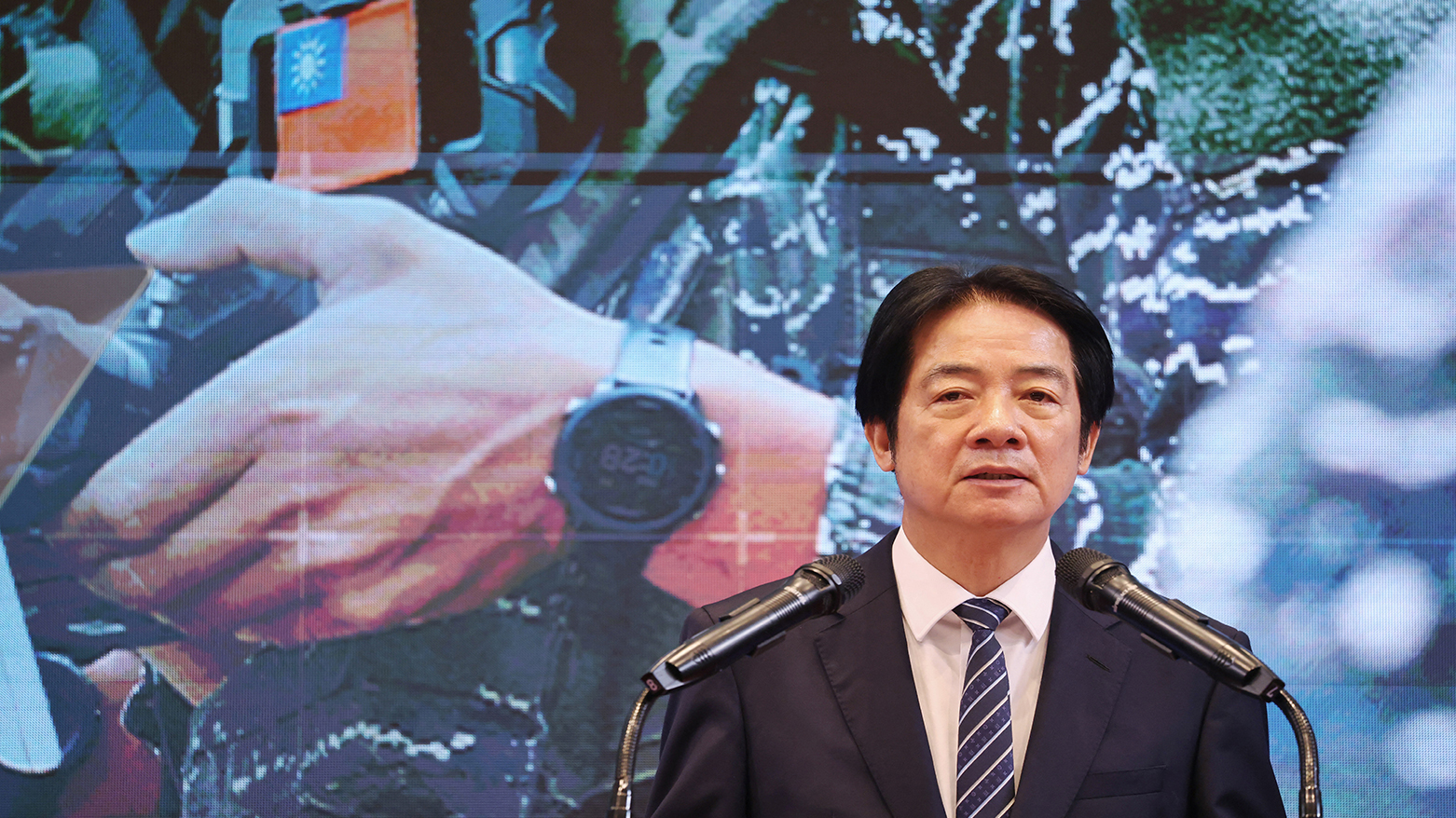Taiwan Unveils $40 Billion Defense Plan Amid Rising Regional Tensions
President Lai Ching-te says the new spending is designed to reinforce Taiwan’s deterrence posture and showcase its resolve in the face of unprecedented security challenges.

ERBIL (Kurdistan24) — Taiwanese President Lai Ching-te on Wednesday announced a sweeping $40 billion defense spending plan, emphasizing that the multi-year package—centered on major U.S. arms acquisitions—is entirely separate from Taipei’s ongoing tariff negotiations with Washington. Lai said the primary goal of the plan is to demonstrate Taiwan’s steadfast commitment to defending itself as China escalates military pressure across the region.
Lai stressed that “this special defense budget has nothing to do with the tariff negotiations,” telling reporters that the new spending is designed to reinforce Taiwan’s deterrence posture and showcase its resolve in the face of unprecedented security challenges.
Raymond Greene, the top U.S. envoy in Taipei and director of the American Institute in Taiwan—Washington’s de facto embassy—welcomed the initiative, urging Taiwan’s political parties to unite behind a stronger defense strategy.
“Whether your priority is preserving Taiwan’s democracy and market economy, fostering cross-Strait dialogue, or maintaining international support, increasing Taiwan’s defense capabilities is a necessary precondition,” Greene said.
Lai reaffirmed that Taiwan aims to establish a “high level” of military readiness by 2027, the date U.S. officials have frequently cited as a potential window for a Chinese invasion. Beijing claims Taiwan as part of its territory and has not ruled out the use of force to annex the island.
The special budget will be allocated over eight years—from 2026 to 2033—and follows Lai’s pledge to raise overall defense spending to 5% of GDP, far above Taiwan’s currently planned increase to 3.3% of GDP in 2026.
Next year’s proposed budget already allocates 949.5 billion New Taiwan dollars ($31.18 billion). U.S. President Donald Trump has publicly urged Taipei to push defense spending to as high as 10% of GDP, a level beyond that of any major U.S. ally.
Lai warned that China’s “threats to Taiwan and the Indo-Pacific region are escalating,” citing recent military intrusions, "maritime gray-zone activities", and "coordinated disinformation campaigns" targeting Japan, the Philippines, and the Taiwan Strait.
As the most critical position in the first island chain, he said, Taiwan must assume greater responsibility for regional security.
The Taiwanese leader also pledged new efforts to counter Beijing’s growing use of psychological warfare, including intensified monitoring and public awareness campaigns aimed at safeguarding elections and major national events from foreign interference.
Lai further addressed a simmering diplomatic dispute between China and Japan, triggered after Japanese Prime Minister Sanae Takaichi suggested Tokyo may intervene militarily if China acts against Taiwan.
Lai described the comments as focused on regional stability and urged China to behave as a responsible major power rather than heighten tensions with its neighbors.
“Each country in the Indo-Pacific region has a responsibility to its peace and stability,” he said. “We especially hope China will demonstrate the responsibilities of a major power. Instead, it has raised threats and attacks toward neighboring countries. This is not how a responsible power acts.”
